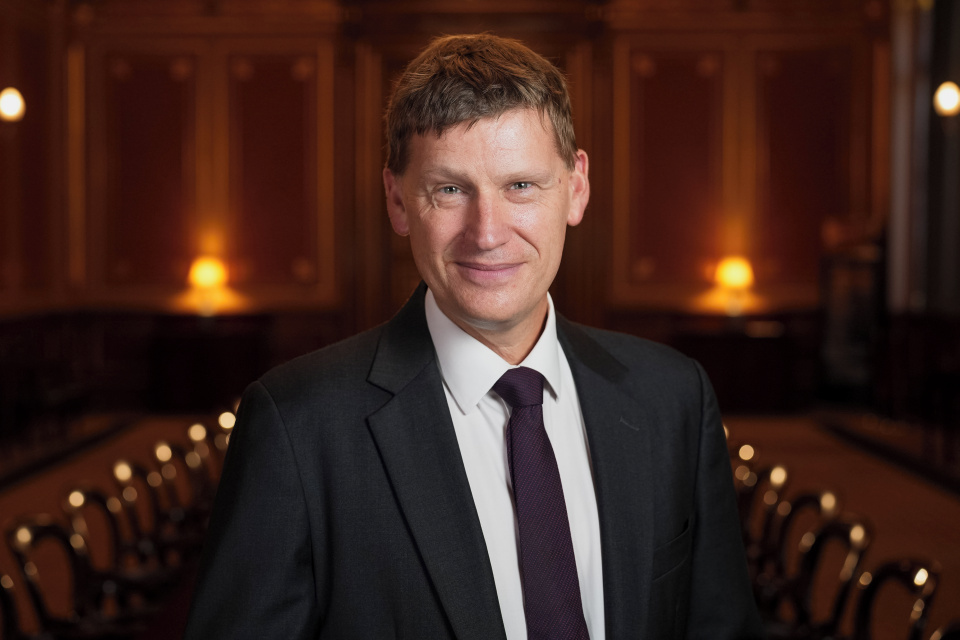The importance of effective transitions
Statement by Ambassador Jonathan Allen, UK Deputy Permanent Representative to the UN, at the Security Council briefing on Peacebuilding and sustaining peace: partnerships for national-owned transitions

Thank you, Mr President, and thank you to our briefers today.
Mr President, we know that transitions are crucial for countries emerging from crisis and which at that time risk return to conflict and the loss of political, developmental and social and economic gains. We need to get those transitions right as a top priority, in particular as we see missions draw down in this Council.
Let me start by saying that we know that for peace to endure, it must be locally embedded. It must be based on national commitment to meeting people’s needs and overcoming their grievances, aligning mandate implementation with nationally owned peacebuilding and development objectives from the earliest possible point is therefore vital in nurturing and enabling an environment for effective transition.
Let me secondly say about the importance of integrated UN approaches, when this Council decides to deploy a UN peacekeeping operation, it does so in order to create space for national actors, to restore security and stability through a political process and/or to protect civilians. And whilst peacekeeping operations can contribute to peace building, they cannot in and of themselves achieve political settlement, resolve the root causes of conflicts, or help national authorities to develop their own capacity. So we need a holistic approach and cross-pillar work in the field from the start to address these issues which bring in humanitarian, development and peacebuilding actors. In that regard, we urge the Secretariat and UN leaders in the field to ensure the Secretary-General’s March 2019 planning directive is fully implemented.
Thirdly, Mr President, let me talk about the importance of partnership for effective transitions. Now, of course, the most important partners will always be national stakeholders, particularly governments, civil society and grassroots organisations working to build peace. And we should deepen those partnerships on the ground. But I’d also like to underline the importance of coordination and cooperation with bilateral donors and with regional and subregional organisations. In that context, I welcome the words from Mr. Yero Baldeh from the African Development Bank today. I’d like to acknowledge, as others have, the important role of the Peacebuilding Commission in support of transitions. It was very good to see Foreign Minister Holmes here. Many of us saw him quite recently, of course. And during the transition in Liberia, the Peacebuilding Commission demonstrated the value of its convening power, bringing together the World Bank, UNOWAS, ECOWAS, and the Country Team to develop a plan and division of labour to support the Liberian government. I was also very pleased to hear from Franck Bousquet today, the partnership between the United Nations and the World Bank is a particular priority for the United Kingdom. The fragility, conflict and violence strategy is an important basis for the bank to focus its efforts in fragile contacts, including by better partnering with the United Nations to devise strategies of tackling the root causes of conflict.
Now, Mr President, let me say a brief word, if I may, about the anticipated transition in Darfur. Let me start by welcoming the political agreement reached by the Transitional Military Council and Forces of Freedom and Change yesterday in Sudan, which sets out a plan for transition to a civilian-led government. This is an important step towards fulfilling the legitimate demands of the Sudanese people. The United Kingdom will support the efforts of all sides to reach agreement on outstanding issues. We will continue to support the transition from peacekeeping and remain hopeful the international community will have a willing and legitimate national partner for peacebuilding.
Given the level of need in Darfur, it’s clear that continued international support will be necessary once UNAMID withdraws. And we therefore look forward to receiving options for a follow-up mechanism, as requested in this Council’s Resolution 2479.
Mr. President, after years of economic mismanagement in Sudan, there is clearly a need for a wider approach to the situation in Sudan.
Let me conclude by suggesting a few concrete ideas for consideration in taking this issue forward. Firstly, regular reports from the Secretary-General could focus more on the risks to successful transitions and set out how the United Nations is working to align mandate implementation with national peacebuilding priorities. The Secretary-General and the Secretariat could also include in those reports examples of how UN missions are working to align mandate implementation with national peacebuilding priorities through the various UN integrated strategic frameworks. This Council could review at working level its use of benchmarks in order to take stock of what works and what does not, with a view to getting this practice even better in future.
At the UN, the Security Council and the broader international community should consider how to make better use of data on overall financing to improve our understanding of the so-called financial cliff associated with transitions. And we in this Council should be asking those questions during our considerations as missions start their drawdown. The Peacebuilding Commission should consider providing short, one-page submissions to the Council on peacebuilding priorities and challenges when this Council is discussing countries which the Peacebuilding Commission has a focus on.
And finally, the Secretariat should consider how to engage the World Bank in strategic assessment and planning exercises.
Thank you, President.